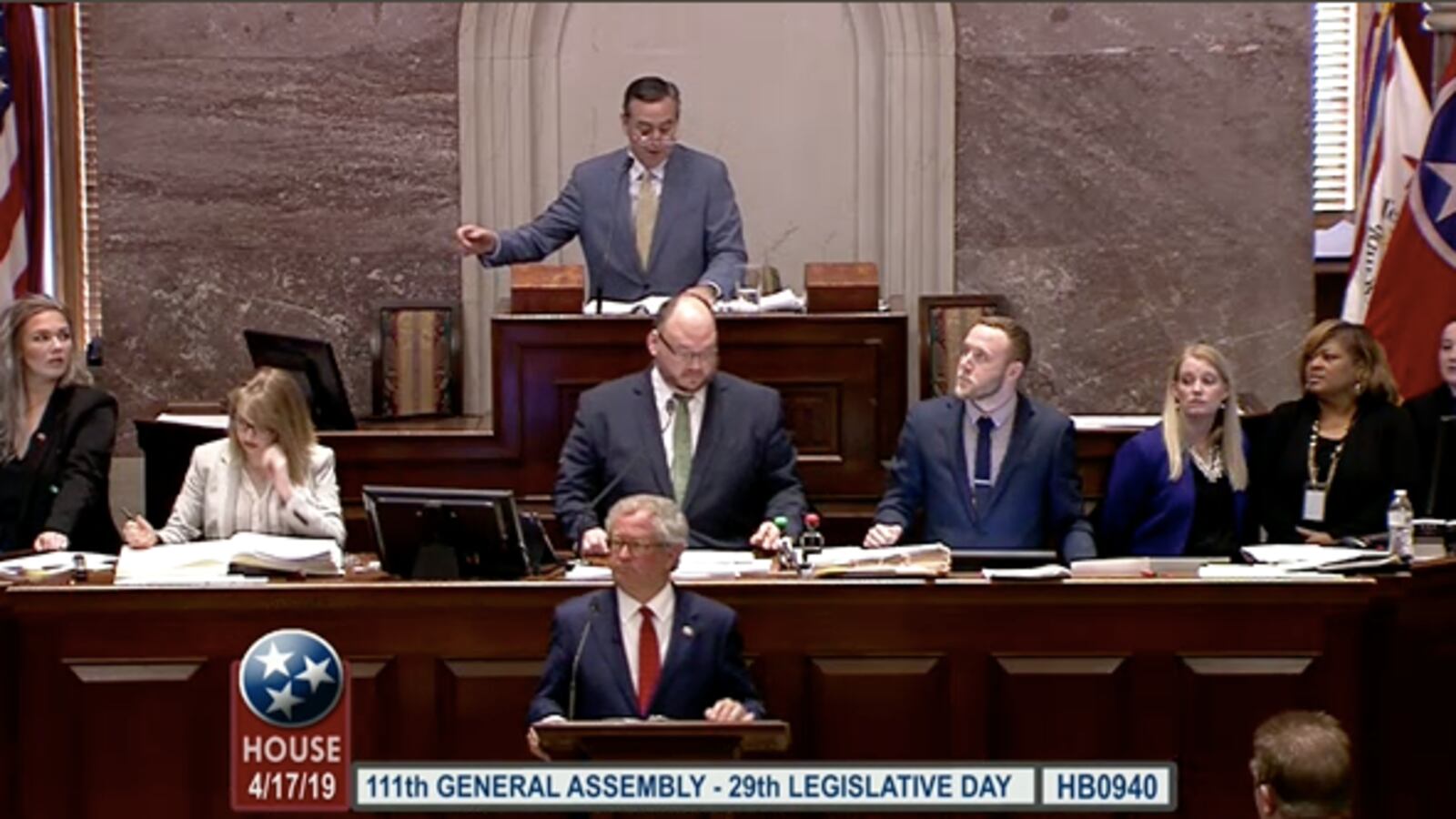Tennessee took a big step this week toward creating a new charter school commission that could overrule local school boards’ decisions to deny charter applications.
Following approval by the House of Representatives on Wednesday, the Senate concurred on Thursday with Gov. Bill Lee’s proposal to give authority for reviewing the state’s growing charter sector to the new nine-member body. As a result, that responsibility will be shifted away from the State Board of Education beginning in the 2020-21 school year.
The legislation now heads to the Republican governor’s desk to await his signature.
Lee says the change is needed to ensure that the state has a single board focused solely on ensuring that high-quality charter schools can open and ineffective ones are closed.
Creation of a state commission is an important victory for Lee, even as he initially wanted to give the body authority to bypass local school boards and open new charter schools directly. But Lee agreed to limit the proposed new body’s authority after district leaders expressed outrage to their legislators about any measure that would circumvent local education control.
As amended, the legislation now requires charter operators to apply first to local school boards and, if denied there, they can appeal to the state commission. That concession from Lee won the hearts of a lot of lawmakers.
Tennessee opened the door to the publicly funded, independently operated schools under a 2002 state law and currently has 112 charter schools serving 38,000 students, mostly in Memphis. But that city has had to close low-performing charter schools, while Nashville’s school board has had intense skirmishes about efforts to expand the sector there.
The State Board of Education has served as the referee when charter groups appeal decisions by local school boards. But since that policy body has a small staff and a long list of other responsibilities, backers of the new commission say it’s time for a change.
“We’re not changing anything in the charter law,” said Rep. Mark White, the Memphis Republican, who carried the bill for the administration. “We think it’s a better way to establish a commission [focused solely on charter schools}.”
Commission members would be appointed by the governor and confirmed by the legislature and would include three members from each of the state’s three grand divisions. In keeping with a change approved Tuesday by the Senate Finance Committee, members would have to reside in a county where a charter school currently operates.
“I think the key point of this legislation — the thing that will make it successful or not — will be the makeup of that charter commission and those making the decisions,” said Rep. Patsy Hazlewood, a Republican from Signal Mountain, of the need to appoint people who “have some familiarity with charter schools.”
Rep. Kirk Haston emphasized the importance of giving voice to those with public school experience.
“I do urge everyone in here, as we go through the confirmation process, that we do our due diligence to make sure that this board has members on it that has experience working with public education,” said Haston, a Lobelville Republican.
Not surprisingly, debate on the floors of both chambers waded into the merits of charter schools, how they are performing in Tennessee, and whether they take money away from traditional public schools.
“Davidson County has got enough charter schools that are breaking our budget as it is,” said Rep. Bo Mitchell, a Nashville Democrat who sought unsuccessfully to remove his district from the oversight of the proposed commission.
Lawmakers in Knoxville, Clarksville, and Memphis also failed in their attempts to do the same.
Rep. Bill Dunn of Knoxville said the bill seeks to bring a professional, research-based approach to a divisive issue.
“We already have charter schools. We already have someone who authorizes it at a state level. This is a bill everybody can vote for because it makes it better, where you agree with [charters] or not,” he said.
The votes of 61-37 in the House and 27-3 in the Senate came after testimony Tuesday that the new charter commission could cost the state nearly $1 million next year and that the price tag likely will rise. The commission would be required to hire a director of schools but also is likely to have an eight-person staff. To offset some of the costs, the commission would charge a 3 percent authorizing fee from the charter schools it runs.
In addition to handling charter appeals, the commission would serve as a state-run school district because the State Board of Education already oversees two charter schools in Nashville and one in Memphis. Those schools opened under the state’s authority when local boards denied their charter applications and were overruled on appeal. The commission would be the new overseer.
Some Tennessee Democratic leaders have called the new commission a ploy to expedite charter growth in the state. Charter advocates counter that it’s a way to ensure decisions on charter school approvals and denials are made wisely.
“We are confident that Gov. Lee and the legislature will ensure that the commission members have a genuine commitment to high-quality public school options for Tennessee students,” said Maya Bugg, executive director of the center, a nonprofit group that advocates for high-quality charter schools.

